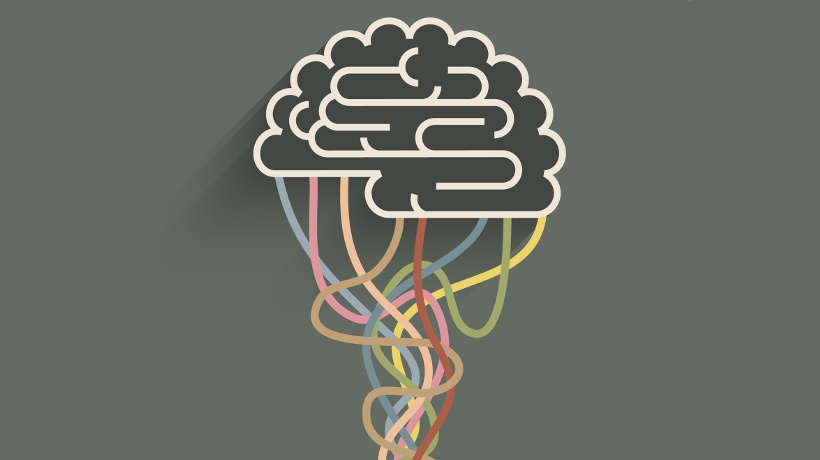Intrapersonal Intelligence And Instructional Design
What is intrapersonal intelligence? Professor Howard Gardner, the Hobbs Professor of Cognition and Education at Harvard, had a radical idea in the seventies:
“By 1981, I was claiming that all human beings possessed not just a single intelligence, rather we humans are better described as having a set of autonomous intelligences.”
That is from Gardner’s seminal book, Frames of Mind.
- Intrapersonal intelligence is the ability to deal with what happens within the individual mind or self. It is private intelligence.
- Emotional Intelligence is the ability to privately identify and manage your own emotions, and identify and manage the emotions of others.
Intrapersonal intelligence. If we do not have a good sense of our own self, trouble may surface. And, in a society dependent on relationships, trouble can be both contagious and infectious. So having a good sense of self is a lubricant for societal behavior. The less a person is able to maintain a sense of self the more disruptive they become to society. The more a person is able to understand themselves the more they will contribute to the smooth running of society.
An understanding of our feelings, the range of our emotional responses, how well we think about things, how well we think about thinking, how well we can step back and see ourselves as others see us, how well we can transcend our self and control it, is going to be a measure of how well we do in society. It is the most private of the multiple intelligences, and needs all the other intelligences (Linguistic, Logical, Spatial, Bodily, Rhythmic, and Interpersonal) to both express itself and to learn from its inputs.
Intrapersonal intelligence is person-to-person communication; the difference being that both persons exist in the same brain or mind.
Our intrapersonal intelligence is literally our ability to turn inwards. It is a vital intelligence because it is the one we use most to come to an understanding of self.
Each member of any group has another dialog going on apart from the dialog with other members - this time a private conversation with themselves. Many times people especially children are derided and belittled for talking to themselves, when in fact they should be encouraged to do so. This ability to conduct an internal dialog is a supreme gift. We can make one side of our personality dominant at any one time. We can resolve conflicts and listen to one side of an argument at a time - all inside one brain or mind.
Brain researchers are concluding that all of us are in fact two people living in one brain: It is called dual consciousness. This is made possible by a very fast communications line called the corpus callosum connecting the two halves of our brain. We all have internal dialog; we can’t stop. So why wouldn’t we talk to ourselves and hold discussions on the merits of this or that choice? Decisions rule our lives. How else but by debate and questions and answers can any of us come to conclusions?
This is our intrapersonal intelligence at work. It is the use of intrapersonal skills that allows us to achieve high order, logical, and critical thinking skills. It is this skill that allows a person to know the state of their inner life. People who can meditate are at least using the gift of intrapersonal intelligence, and perhaps other skills we do not know about yet. Those who meditate are trying to establish knowledge of self in relation to what exists beyond their skin. An intense ability to train and use their intrapersonal intelligence is obviously a prerequisite for this. On the other hand contemplation, as practiced by Catholic and other mystics, is an effort to actually rid oneself of the intrapersonal intelligence, at least temporarily, and replace it with or make room for the light of the Divine.
Intrapersonal intelligence is just as much a gift of inner dialog as interpersonal intelligence is a gift of external dialog. We use words and images to toss ideas around in our brain so that we can make up our mind; and this is thinking of the highest order.
Beliefs, opinions, points-of-view are intensely personal; but one thing is to my mind certain; whatever beliefs we hold, we got them through dialog and this dialog is the real gift. This dialog is sometimes with others; sometimes through reading, sometimes through talking, but mostly it is between you and yourself - and of course your conscience.
After spending a great deal of time with myself, using my intrapersonal intelligence, I have realized it is not the conclusion that matters so much as the continued exercise of the gift of intrapersonal intelligence.
It sounds like an oxymoron but stepping outside of oneself is a way to reach one’s full potential. As you would suspect, intrapersonal intelligence involves us knowing about the internal aspects of life. However, it helps if we not only know about our internal emotional life, but if we go one step further, step outside ourselves, and see ourselves the way others do. Without this astonishing ability to step outside ourselves we would not be self-aware, and neither would we be conscious of the fact that we are conscious. This is a transcendent skill that allows us to see reality as a whole -of which we are a very important part- and not just see the bits of our reality that are of immediate concern.
Without intrapersonal intelligence, we could not dream, imagine possibilities, or read other people; nor could we make our dreams a reality; nor could we manage our emotions, and most importantly interpret the emotions of others.
The sad part is that so few of us take advantage of this skill and neither do we take the time to develop it. An American philosopher and the founder of American psychology by the name of William James (1842-1910), brother of the novelist Henry James, said it best:
“I have no doubt whatsoever that most people…make use of a very small portion of their possible consciousness…much like a person who, out of the whole body organism, should get into the habit of using and moving only the little finger. We all have reservoirs of life to draw upon of which we do not even dream.”
Understanding that we all have multiple ways of accessing information allows us to realize and potentially fulfill our potential. All seven intelligences are vital, but it is our gift of self-reflection -our intrapersonal skills- that is the most important. Without it, we would only be able to “move our little finger”. Using intrapersonal intelligence we discover our real self.
The Real Self
According to Dr. James Masterson, a psychiatrist and author, the real self has several components. The real self can experience a wide range of feelings, deeply, vigorously, excitedly and spontaneously. The real self can assert itself and can be responsible for its own level of self-esteem. The real self can heal or soothe its own feelings. The real self can make and stick to commitments of a personal or professional nature. The real self has a capacity for creativity and intimacy. Finally, the real self can be alone with itself.
The real you—an entity that is constantly evolving—is a package that you build. You put it together—using your interpersonal and intrapersonal intelligences—by interpreting and absorbing external signals about the world and how others see you, and then forming conclusions about yourself and your place in the world. This becomes your “I am.” This “I am” knows that you can have an effect on the world and others in the world, and it is the beginning of good and healthy self-esteem.
According to Professor Gardner, our intrapersonal intelligence is our private intelligence; it is the awareness of our inner life. Gardner tells us that we can imagine and dream privately, but we cannot actualize or express that dream without utilizing all our other intelligences. To communicate our dream to others we must write, speak, use musical or arithmetical notation, and gestures; even sing, paint and dance.
How To Use Our Intrapersonal Intelligence
The goal of intrapersonal intelligence is to make reflection a habit. This habit will serve you well at all stages of life especially as you grow older when many more judgments are called for and the results of these judgments escalate in value and consequences.
Periodically and deliberately step outside yourself and look at yourself, as if looking at someone else in a mirror. This will get you used to the idea of practicing the gift of metacognition: Thinking about what you are doing, and thinking about what you are thinking.
Look at your reactions to occurrences that upset or make you happy. Look for verbal clues to use which you think might help you better describe what you are feeling, such as anger, joy, revenge or sadness. Dr. David Lazear suggests -and I wholeheartedly agree- that periodically we all should write a private 25 word paragraph in answer to the question “Who am I?”.
Nature gave us legs and arms, and we regularly exercise and train them in order to run or jump or throw or hit a ball better. Doesn’t it also make sense to exercise our inner being also? By using the mind well, a person can be a success even if they are physically challenged. If a person cannot exercise their mental faculties to the maximum of their potential, they will be less successful.
If we do not regularly practice hitting, throwing, swimming, running, ice-skating or jumping, those skills go back to sleep. It is the same with our personal intelligence. The intrapersonal intelligence is a natural part of our daily cognitive and sensory lives; it happens instinctively. The key is to raise it to a higher level of awareness and to make sure things stay that way: staying awake.
The first step is the one you have just taken: reading this editorial. If you can make use of this private intelligence and turn yourself in on your ‘self,’ you can better help others do the same.
Emotional Intelligence: “The Intelligence Of The Heart”
This is a close cousin, or better yet a Siamese twin, of intrapersonal intelligence. Emotional intelligence is the degree to which a person can identify and manage their emotions. Emotional intelligence is also the ability of a person to harness and manage their emotions, and to harness and manage the emotions of others and apply them to problems. Problems cannot be solved by people who cannot manage their own emotions and, if collaborating with others, manage theirs.
On the other hand if people do sense and understand and effectively apply the power of emotions and add the cognitive element, personal growth and solutions to problems become much easier.
Check how well you and your colleagues do when reading body language, listening with an empathetic attitude, communicating via emotions, knowing when to be silent and using emotions with wisdom and grace. Feelings matter!
Emotional and cognitive skills have equal weight. But again only in the context of other people. A person can be the most empathetic listener, but without someone to listen to the gift is of no value. A great thinker needs an audience to approve of her ideas and implement them. In other words, teams are the key.
To see how you can organize teams for maximum effect see my Terego Enterprise Training Methodology. Register now - the demonstration is free.







